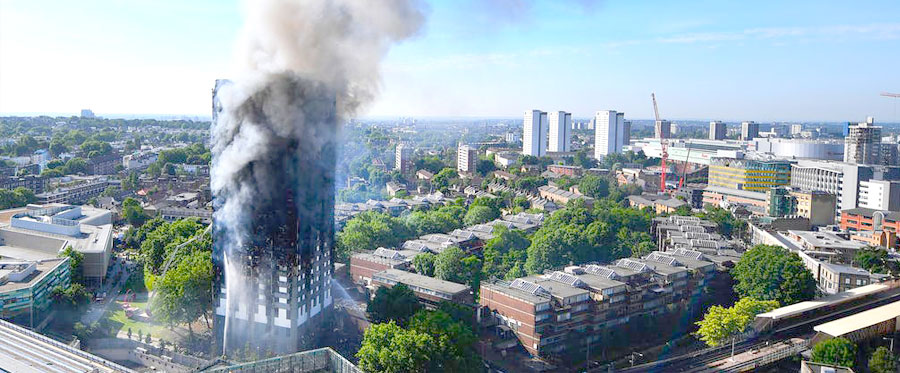New regulations for combustible cladding in Queensland
Following London’s Glenfell Tower disaster and further incidents in Melbourne’s Lacrosse building and Spencer street apartment building fires, the Queensland government has been examining ways to identify risks associated with residential buildings.
From 1 October 2018, the Queensland government announced the Building and Other Legislation (Cladding) Amendment Regulation 2018 will come into force requiring property owners to assess their buildings for the presence of Aluminium Composite Cladding (ACP).Here’s a summary overview of what you should know when it comes to combustible cladding in Queensland:
- Which classes of buildings are affected?
- What action does the committee need to take?
- What happens if your building does not have any cladding?
- Will this have an impact on bodies corporate insurance?
- What are the key compliance deadlines that need to be considered?
- What happens if you miss the deadlines?
Which classes of buildings are affected?
-
- Any building classes 2 to 9 (residential and commercial, other than houses)
- Any building that had a building development approval issued after 1 January 1994, but before 1 October 2018
- Any building that is of Type A or Type B construction (buildings above two storeys)
What action does the committee need to take?
-
- Know your responsibilities in this unique circumstance, including the updated regulations and information. For more information, visit Queensland Building and Construction Commission (QBCC)
- As part of the assessment process there are two-stages that will need to be completed. For buildings deemed to be of “high risk”, a third stage will be necessary. For more information, visit https://www.saferbuildings.qld.gov.au/
- Source the relevant documents, such as a copy of your property’s Certificate of Classification, to confirm your buildings legal status regarding this matter.
- If the QBCC selects to contact you directly, your body corporate will be advised to officially appoint an authorised agent to manage this process.
As part of our additional services, Body Corporate Services (BCS) is working to ensure each body corporate has the appropriate information on hand to be able to determine if they meet the pre-defined criteria for the stages to commence.
What happens if your building does not have any cladding?
In circumstances where it may appear that your building does not have any cladding, the Queensland Building and Construction Commission (QBCC) has made it clear that the onus of responsibility rests with owners to demonstrate the status of their buildings.
While this initial regulation and audit process is only applying to identified “high risk” buildings, this considered to be a similar issue to asbestos management and fire safety standards – that these requirements will be widespread and standard in future.
Will this have an impact on bodies corporate insurance?
As a separate initiative, many insurers are requiring a similar assessment as part of their renewal process. If this is requested from you, our team at Body Corporate Services (BCS) can provide committees with assessment options to avoid higher premiums or reduced coverage.
What are the key compliance deadlines that need to be considered?
- 29 March 2019 – Register and complete an online checklist provided via QBCC
- 29 May 2019 – If your building has cladding, you must have a building industry professional assess the level of risk
- 3 May 2021 – If your building has cladding, a building fire safety risk assessment will need to be completed by a qualified fire engineer.
What happens if you miss the deadlines?
Once the 29 March deadline has passed, you have risk paying fines up to 20 penalty points for non-compliance. Additionally, you will need to provide a building industry professional report to the QBCC.
If you need further guidance on this matter, a Body Corporate Services (BCS) representative can assist – simply email qldcladding@picagroup.com.au or call (07) 3721 7000.
If you’d like to stay in touch with legislation updates and to access helpful resources, click here to visit our webpage to stay informed. Or ask a question at StrataFAQ.com.au.



